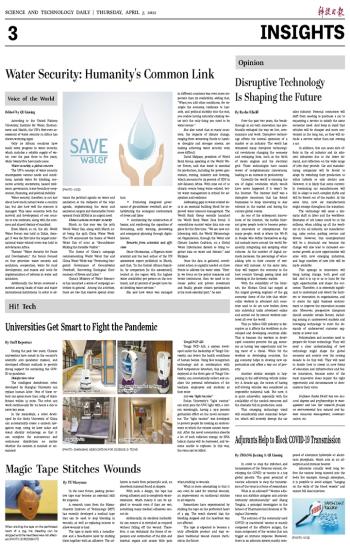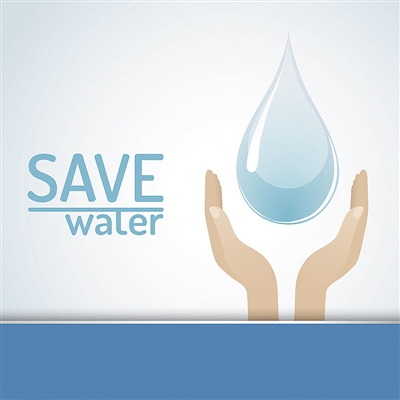
 |
| (PHOTO: VCG) |
According to the United Nations University, Institute for Water, Environment and Health, the UN's first-ever assessment of water security in Africa has shown worrying signs.
Only 29 African countries have made some progress in water security, which includes a reliable supply of water, over the past three to five years, while twenty-five have made none.
Water security, a global concern
The UN's concept of water security encompasses various needs and conditions, namely water for drinking, economic activity, ecosystems, hazard resilience, governance, trans-boundary cooperation, financing, and political stability.
Water security, therefore, is not just about how much natural water a country has, but also how well the resource is managed. This issue concerns both the survival and development of one country or one continent, along with the common and shared destiny of mankind.
From March 21-26, the 9th World Water Forum was held in Dakar, Senegal. It was the first time the largest international water-related event was held in sub-Saharan Africa.
Themed "Water Security for Peace and Development," the forum focused on four priorities: water security and sanitation, cooperation, water for rural development, and means and tools for implementation of reforms in water and sanitation.
Additionally, the forum convened a summit among heads of state and major international institutions. In order to advance the political agenda on water and sanitation at the midpoint of the 2030 agenda, implementing the water and sanitation targets and Sustainable Development Goals (SDGs) is an urgent need.
China's actions on water security
March 22 this year was the 30th World Water Day, along with March 22-28 being the 35th China Water Week. The UN announced the theme of World Water Day of 2022 as "Groundwater: Making the Invisible Visible."
The theme of China's campaign commemorating World Water Day and China Water Week was "Promoting Integrated Governance of Groundwater Overdraft, Recovering Ecological Environment of Rivers and Lakes."
China's Ministry of Water Resources has launched a series of campaign activities in general. Among the activities, there are two that deserve special attention:
? Promoting integrated governance of groundwater overdraft, and rehabilitating the ecological environment of rivers and lakes
? Accelerating the construction of basins, and reinforcing the capacities of forecasting, early warning, previewing and emergency planning through digitalization
Remarks from scientists and officials
Grace Oluwasanya, a Nigerian water scientist and the lead author of the UN assessment report published in March, said that, "In the Central African Republic, by comparison [to the assessment], located in the region with the highest water availability per person on the continent, just 37 percent of people have basic drinking water services."
She said how water was managed in different countries was even more important than its availability, adding that, "When you add other conditions, for example the economy, resilience to hazards, and political stability into the mix, you realize having naturally existing water isn't the only thing you need to be water secure."
She also noted that in many countries, the impacts of climate change, ranging from worsening floods to harsher droughts and stronger storms, are making achieving water security even more difficult.
David Malpass, president of World Bank Group, speaking at the World Water Forum, said that water is essential for production, including for power generation, mining, industry and farming, which accounts for 23 percent of GDP in sub-Saharan Africa. With nine out of 10 climate events being water-related, better water management is critical for adaptation and resilience.
Addressing gaps in water-related data is an essential building block for improved water resource management. The World Bank Group recently launched the World Bank Water Data Portal. It consolidates curated water data into one place for the first time. "We are now collaborating with the World Meteorological Organization, through the Water and Climate Leaders Coalition, on a Global Water Information System to bring together data on water and climate," said Malpass.
Once the data is gathered, coordinated action is urgently needed on three fronts to address the water crisis. "Firstly, we focus on the policy measures and better institutions, then we need to increase public and private investment and finally, greater citizen participation is the most essential part," he said.


 Next
Next




